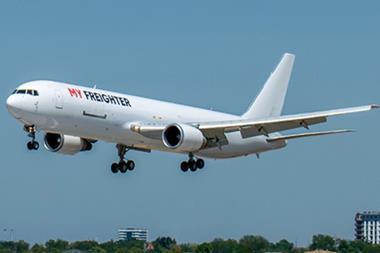Turkish Airlines has confirmed plans for its cargo business to become a wholly-owned subsidiary of the overall airline.
In his welcome speech at the Cargo Talks webinar, Ilker Ayci, chairman of the board of directors and executive committee of Turkish Airlines, highlighted the growth of the airline's cargo business last year.
Ayci said that its cargo volumes increased to 6.7bn freight tonne kms (FTKs). As a result, the airline has moved up from being the eighth busiest airline in terms of cargo traffic to sixth place.
Following on from this, the cargo business will now become a subsidiary of Turkish Airlines.
"Turkish Cargo displayed the necessary dedication and innovation under such difficult and unusual conditions and came to the fore as an exceptional and aspirant air cargo company," he said.
"Emboldened by the success we aim even higher with Turkish Cargo. Soon Turkish Cargo will become a fully fledged subsidiary company, rather than a sub-brand and will have its own giant terminal at Istanbul Airport.
"Scheduled to be integrated in the spring of this year, this new state of the art terminal is named Smartist.
"Once all the phases are completed, Smarist will be the largest industrial building with a 340,000 sq m and will be to handle 4m tonnes of cargo per year.
"This modern facility will also underscore Istanbul’s continent spanning location, providing the perfect gateway for commerce between east and west."
The carrier first revealed plans to separate out its cargo business in November last year.
At the time, the company said: "Our board of directors decided to establish an air cargo company, wholly-owned by the Incorporation, due to the increasing trend on cargo operations and to take quick actions while improving focused strategies like new product development and vertical integration.
"The newly established company will strengthen our position among the most crucial players in the cargo sector, by making the most of Turkish Cargo's unique competitive advantage and create a separate platform for potential strategic foreign partnerships in the future."















